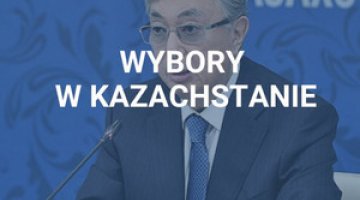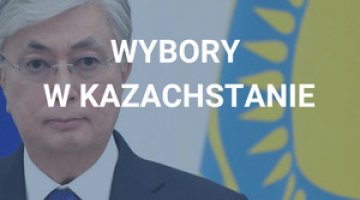The EU is the battlefield between Astana and a fugitive banker-dissident
Who is Ablyazov?
Mukhtar Ablyazov was part of the political and business elite of Kazakhstan, and as such served as Minister of Energy and Trade from 1998 to 1999. Then, at the beginning of the last decade, he joined the opposition and co-founded a movement critical of Nazarbayev, Kazakhstan’s Democratic Choice. He was sentenced to six years in prison for abuse of power during his time in the government (although he says it was for his political activities); but after a few months he was pardoned by President Nazarbayev in 2003, probably in exchange for a promise to refrain from engaging in politics. Thereafter Ablyazov worked in business; among his other positions, he was the head and principal owner of the largest Kazakh bank BTA, and also financially supported independent media (such as the Respublika newspaper, and the K+ television station, which broadcasts from overseas). These activities were tolerated by the authorities as elements of a democratic facade. In 2009, he fled from Kazakhstan to the United Kingdom, on the eve of the devaluation of the Kazakh currency, and a few weeks before the bankruptcy (and nationalisation) of the BTA Bank. Ablyazov received political asylum in the UK, but at the same time BTA sued him in a British court for having embezzled several billion dollars from companies he controlled. During the trial Ablyazov refused to disclose his assets, for which he was sentenced by a British court to 22 months’ imprisonment and automatically deprived of the right to defend himself in the BTA case. Currently Ablyazov is in hiding from British justice. Arrest warrants for him have been sent from Russia, Ukraine and Kazakhstan, where BTA had assets.
Ablyazov became ‘public enemy number one’ in Kazakhstan after the events in Zhanaozen in 2011. On that day, Kazakhstan’s national holiday, at least 14 people were killed in bloody clashes between the police and striking workers. These events sparked a wave of international criticism against Kazakhstan, and undermined its reputation for internal stability and Nazarbayev’s non-repressive rule. After the events in Zhanaozen, in addition to score-settling within the elite, the Kazakh government launched a relentless campaign against Ablyazov’s associates. These people (including Respublika) had offered their support to the striking workers, which probably contributed to the radicalisation of the dispute. The repression of Ablyazov’s associates met with another wave of criticism from the West, including the European Parliament. One of the groups, that may have contributed to the critical resolution adopted by the Parliament, was the Open Dialogue Foundation operating in Poland and Brussels, which has actively promoted a point of view on the situation in Kazakhstan consistent with Ablazov’s.
Kazakhstan’s reaction to the wave of criticism from the West was to neutralise Ablyazov and capture his associates, who are mainly resident in the EU.
The Italian scandal
The latest instalment of the Kazakh government’s fight against Ablyazov was the deportation of his wife and daughter in Italy, which was carried out without following official procedure (the Italian Ministry of Foreign Affairs was not informed). The Italian opposition made a scandal out of the matter, with the aim of removing the Minister of the Interior (media reports indicate that he is seen as a close associate of Silvio Berlusconi, who in turn has a very good relationship with President Nazarbayev). Rome eventually cancelled the deportation, and now considers Kazakhstan’s ambassador to be persona non grata. The deportation scandal has become a hot topic, not only in the Italian media but also in foreign press, i.e. the Financial Times and the Independent. The matter has also affected another extradition case in Europe, that of Ablyazov’s former head of security, Aleksandr Pavlov, from Spain.
Until now, the Kazakh government’s main problem was the activities of Rakhat Aliyev, the president’s ex-son-in-law, who also resides in the EU and is positioning himself as a political dissident; he was sentenced in Kazakhstan for leading an organised criminal group, among other charges. Malta’s candidate for the position of EU Commissioner, Tonio Borg, was accused in May this year of accepting a bribe from Aliyev in exchange for arranging a permanent residence permit for him.
Consequences
Kazakhstan’s relentless struggle with Ablyazov is undermining its international opinion and is becoming a problem in its relations with the EU and its member states. The actions Kazakhstan has taken are proving controversial, and have brought forth much negative comment in the Western media, thus helping to build up Ablyazov’s image as Nazarbayev’s main political opponent. However, neither Ablyazov himself nor his associates have – and nor have they ever had – more than negligible public support within Kazakhstan. Currently, their main activity is focused on emphasising those human rights violations and repression in Kazakhstan aimed primarily at the groups associated with Ablyazov. The aim is to generate tensions within Kazakhstan (including the ruling elite) which could have an adverse impact on the succession process after Nazarbayev leaves power. As a result Kazakhstan – which while not a democracy, operates a political system which is far less repressive than those in neighbouring Turkmenistan and Uzbekistan – is becoming the personification of a despotic regime in the eyes of Western public opinion. This has raised the opposition of the authorities in Kazakhstan and strengthened their resistance to criticism from the West, as the criticism is seen as inspired by a personal enemy of Nazarbayev.




